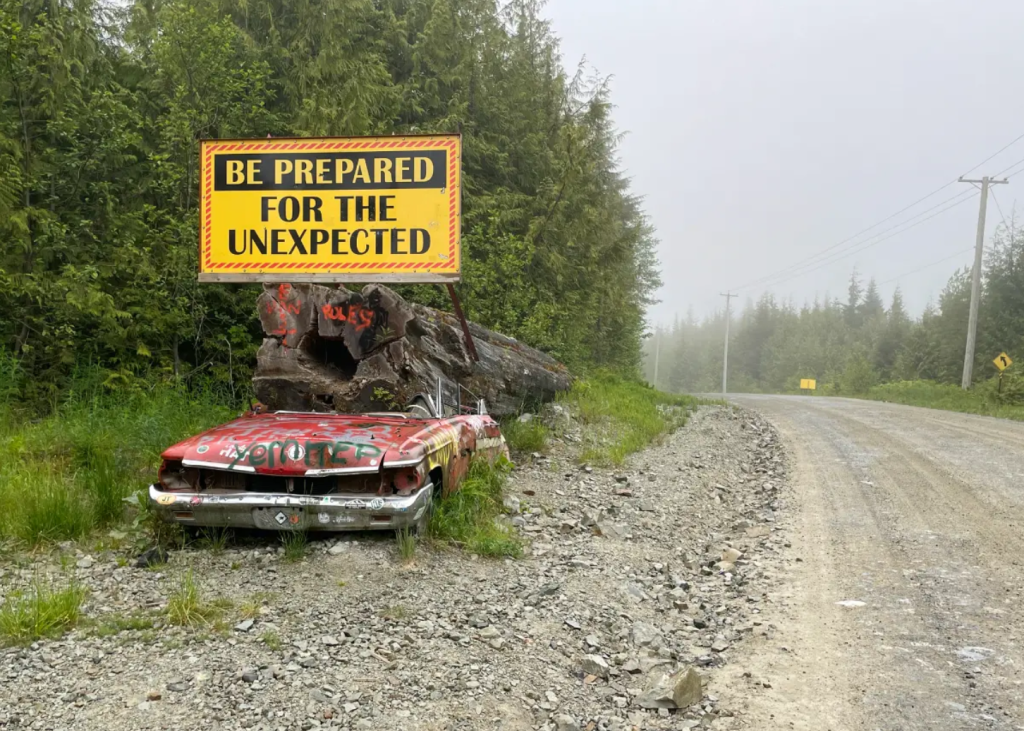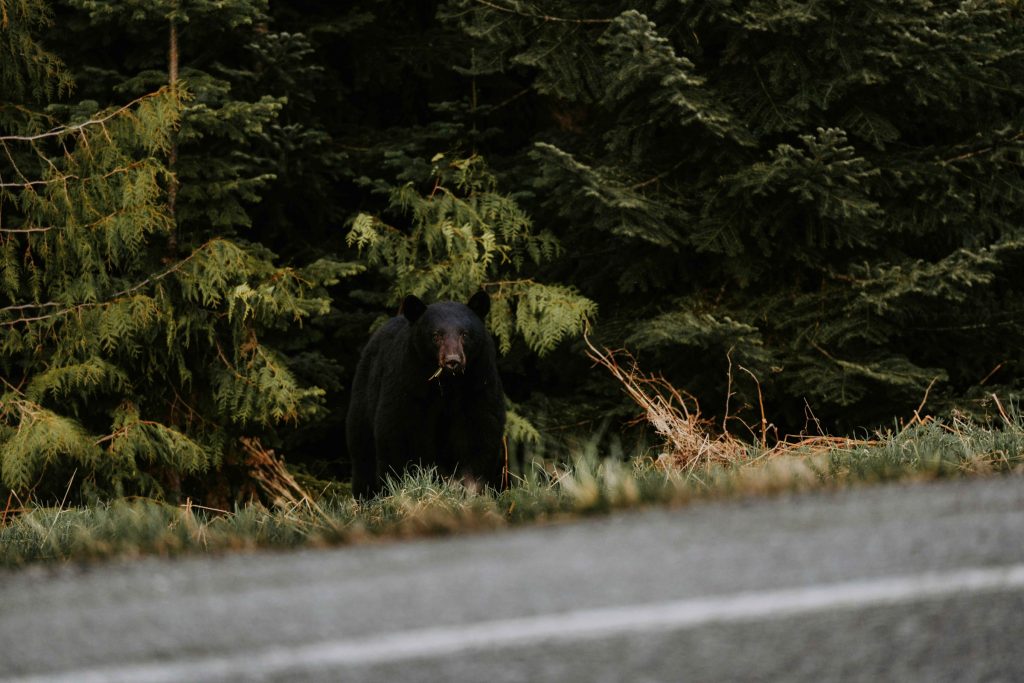The rugged allure of Cape Scott Provincial Park, with its breathtaking trails, windswept beaches, and the iconic North Coast Trail, beckons adventurers from near and far. As you plan your adventure to this northernmost tip of Vancouver Island, we want to share some important insights about the journey itself – specifically, the road that leads you there. The Vancouver Island North Wild Pledge is a promise to journey with care. Sign it before you visit to learn how to be a responsible visitor to this special part of the world.
Think of the drive to Cape Scott as the first part of your experience. It’s a scenic route, winding through the island’s lush interior, but it’s also an active logging road. This means things can be a little different than your average highway drive, and a little preparation goes a long way in ensuring a smooth and enjoyable start to your adventure. Given the unmaintained nature and potential for uneven surfaces, a 4-wheel drive vehicle with good clearance is necessary for this journey.
Sharing the road with giants
Holberg and beyond is active logging territory. Throughout the week, you will likely encounter large logging trucks going about their important work. These vehicles have the right-of-way, so please be courteous and yield to them. Finding a safe place to pull over and let them pass will make the journey safer for everyone.
Take the Wild Pledge to Share the Trails, Roads, Routes, & Parking Areas.

Keep your eyes peeled
Beyond the trucks, this is also home to some of Vancouver Island’s incredible wildlife. Keep a watchful eye out for deer, bears, and other creatures that call this area home. Remember to observe them from a safe distance and never feed them.
Take the Wild Pledge to Observe and Not Disturb Wildlife & Natural Habitats.

Rough roads
While the logging companies do their best to maintain the road, it’s important to be prepared for uneven surfaces and large rocks. These natural obstacles can pose a risk to tires, so we strongly recommend ensuring your spare tire is in good condition and that you have the necessary tools and know-how to change a flat if needed.
Check out Western Forest Product’s Road Info Site to Know Before You Go.
Crucially, it’s vital to understand that emergency services are not readily available in this remote location. Cellular service can is non-existent, meaning calling for help is not an immediate option. With this in mind, packing essentials like extra food, plenty of water, and a basic emergency kit (including a first-aid kit, flashlight, and perhaps a satellite communication device if you have one) is not just a good idea – it’s essential for your safety and well-being.
Getting to Cape Scott is part of the adventure, a chance to truly disconnect and immerse yourself in the natural beauty of Vancouver Island North. By being aware of the road conditions, sharing the route responsibly, ensuring you have a suitable vehicle, and coming fully prepared for self-sufficiency, you’ll set yourself up for an unforgettable experience in this remarkable corner of the world.
Additional Safety Tips for the North Island Logging Roads (Inspired by Western Forest Products Road Information):
- Plan Ahead: Check the weather forecast and current road conditions before you go. You can find updates on Twitter using @WFPRoadInfo and the #Holberg hashtag.
- Vehicle Preparedness: Ensure your vehicle is in good condition, with a full tank of fuel and a spare tire.
- Essential Supplies: Carry water, snacks, warm clothing, and road safety gear.
- Driving Precautions: Always use headlights, follow speed limits, and be prepared for heavy equipment, logging trucks, and wildlife.
- Visibility: If visibility is poor due to dust, wait for it to settle before proceeding.
AdventureSmart is a national program dedicated to encouraging Canadians and visitors to British Columbia and Canada to ”Get informed and go outdoors”. AdventureSmart balances key safety messages with an individual’s responsibility for safety; encouraging the public to obtain the knowledge, skills and equipment necessary for them to enjoy their outdoor pursuits. By being AdventureSmart, outdoor recreationalists make informed decisions, reducing the frequency, severity and duration of search and rescue (SAR) incidents.
Vancouver Island is a natural wonder to everyone that lives and travels here, and it is our responsibility to preserve and protect it – now and for the future.
Take the Wild Pledge and commit to being a responsible visitor to Vancouver Island communities, businesses, Indigenous communities, forests and oceans.